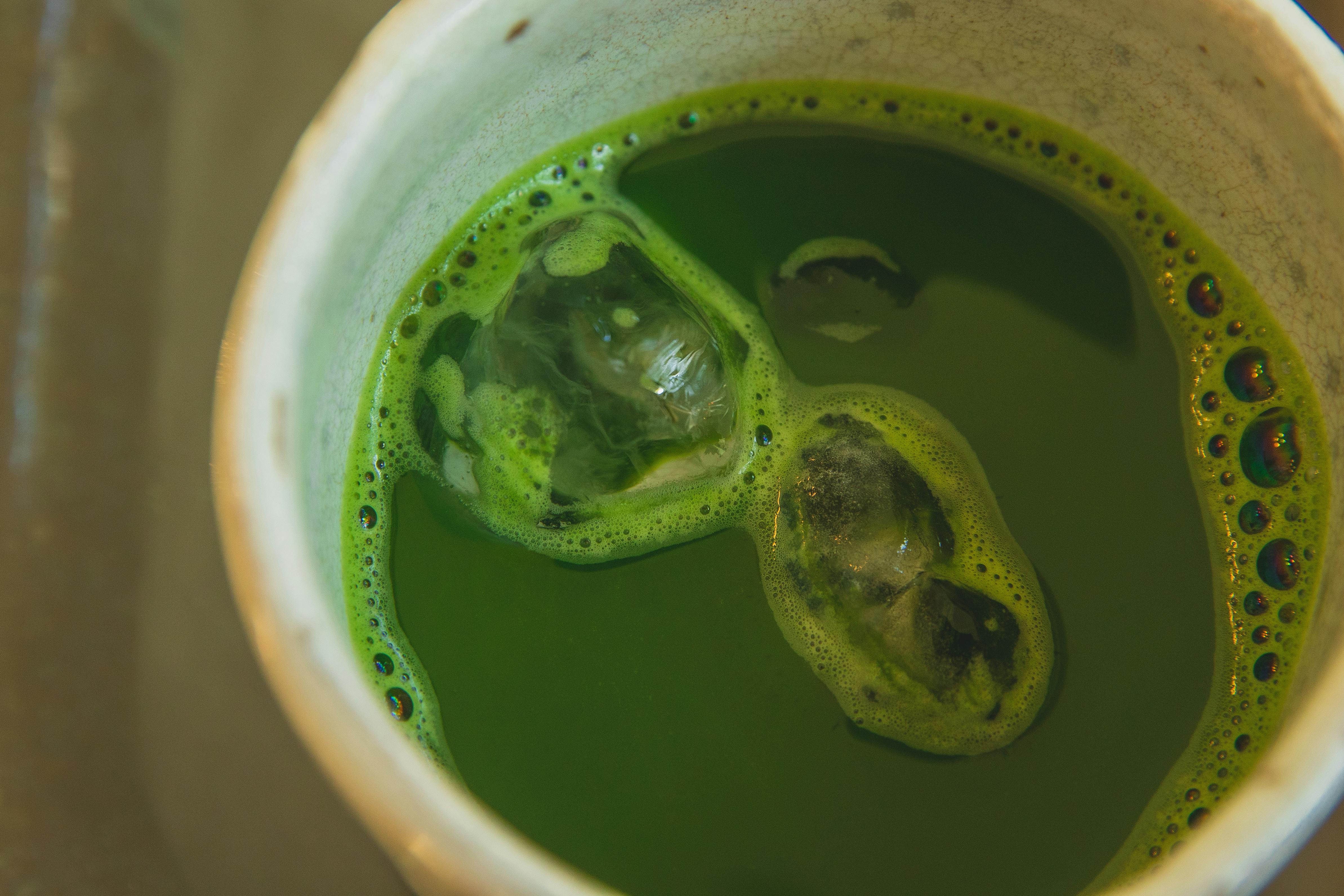Have you ever wondered if Brisk Iced Tea is carbonated? Does it contain the same bubbles that we associate with other carbonated drinks such as soda and sparkling water? In this article, we will be unveiling the truth behind the bubbles in Brisk Iced Tea and figuring out whether or not it is actually carbonated.No, Brisk Iced Tea is not carbonated.
Unveiling the Truth Behind the Bubbles
Bubble tea has become popular worldwide, and for good reason. It’s refreshing, delicious, and comes in a variety of flavors. But what is bubble tea? What is it made of? And why is it so popular? In this article, we’ll explore the truth behind the bubbles and uncover the answers to these questions.
Bubble tea originated in Taiwan in the 1980s. It is a type of cold tea-based drink that often contains tapioca pearls, also known as boba or pearls, that give the drink its signature bubbles. The “bubbles” are actually a type of starch that comes from cassava root. The pearls are typically added to an ice-cold tea base along with milk or cream and various sweeteners such as honey or syrup. The result is a delicious and refreshing sweet drink with chewy tapioca pearls at the bottom.
Bubble tea has become increasingly popular around the world for many reasons. One of the main reasons is because it’s an enjoyable treat that can be customized according to individual tastes. For example, people can choose their favorite flavor of tea as a base for their bubble tea, and then add any combination of toppings such as fruit jellies or pudding to give it an extra boost of flavor. Additionally, bubble tea can be made with either dairy milk or non-dairy milk alternatives such as almond or coconut milk – making it suitable for everyone regardless of dietary restrictions.
Another reason bubble tea has become so popular is because it’s fun to drink! The tapioca pearls at the bottom not only add flavor but also give drinkers something to chew on while they sip their drink – making it an interactive experience that people enjoy sharing with friends and family.
The popularity of bubble tea continues to grow around the world due to its unique flavor and customizable nature, making it easy for people to find something they like even if they don’t typically enjoy drinking traditional teas. So next time you’re out looking for a refreshing beverage, don’t forget about bubble tea!
Carbonation
Carbonation is the process of introducing carbon dioxide gas into a beverage, resulting in the formation of carbonic acid. Carbon dioxide is soluble in water, and when it is dissolved in water, it forms a weak acid called carbonic acid. This adds a slight tartness to the beverage that many people find enjoyable. Carbonation can also be used to provide fizziness or bubbles to beverages such as soda and beer. Carbon dioxide can be added to a beverage manually, or it can be produced naturally through fermentation.
Identifying Carbonated Beverages
Carbonated beverages contain dissolved carbon dioxide gas, which produces bubbles when released. Carbonated drinks are popular worldwide and come in a variety of flavors, including cola, root beer, and ginger ale. Identifying a carbonated beverage is easy; look for the bubbles! A bottle of carbonated beverage will have small bubbles rising to the surface of the drink or a “fizz” when you open the top.
The most common way to identify a carbonated beverage is by its taste. Since many types of soda have distinct flavor profiles, it is usually easy to tell what type of drink you are consuming simply by tasting it. For example, colas typically have a sweet and tart flavor, while root beers tend to be creamy and sweet with hints of vanilla and spices.
Additionally, many brands of soda feature distinct packaging that can help you identify the type of beverage you are drinking. For example, Coca-Cola cans feature the iconic red label with white script logo. Pepsi cans have blue labels with red script lettering. Ginger ale cans often feature yellow or green labels with black lettering.
In addition to visual cues from packaging and labels, you can also identify carbonated beverages by their ingredients lists. Most sodas contain high fructose corn syrup and artificial flavors as well as preservatives like sodium benzoate or potassium sorbate. If any of these ingredients appear on an ingredient list, then it is likely that the product is a carbonated beverage.
Ultimately, identifying a carbonated beverage involves looking for bubbles or foam on top of the liquid as well as tasting it to determine its flavor profile. Additionally, examining the packaging and ingredient list can also help you determine whether or not a drink is carbonated.
Does Brisk Iced Tea Contain Carbonation?
Brisk Iced Tea does not contain carbonation. Brisk Iced Tea is a brand of iced tea that is made with brewed tea leaves and real sugar. It is also flavored with natural flavors like lemon and raspberry. The drink does not contain any carbon dioxide or preservatives, making it a healthier alternative to other sugary drinks. The lack of carbonation also gives the drink a smooth taste without the fizziness associated with most carbonated beverages. Additionally, Brisk Iced Tea does not contain any artificial sweeteners or colors, making it an even healthier choice.
In conclusion, Brisk Iced Tea does not contain any carbonation, making it a healthy alternative to other sugary drinks. It is made with brewed tea leaves and real sugar and flavored with natural flavors like lemon and raspberry. Its lack of carbonation gives it a smooth taste without the fizziness associated with most carbonated beverages, while its lack of artificial sweeteners or colors makes it an even healthier choice.

Sugary and Carbonated Drinks
Sugary and carbonated drinks, although often confused for one another, are actually two different types of beverages. Sugary drinks are those that contain added sugar or artificial sweeteners, such as soda, energy drinks, sports drinks, and fruit-flavored beverages. Carbonated drinks, on the other hand, have added carbon dioxide gas to create a fizz in the drink. Some examples of carbonated drinks include soda water, seltzer water, tonic water, and ginger ale.
The main difference between sugary and carbonated drinks is that sugary drinks contain added sugars and calories while carbonated drinks do not. Sugary beverages are packed with empty calories which can lead to weight gain over time if consumed in excess. Carbonated beverages contain no calories or sugar but can still have an impact on your health if consumed in excess due to their high acidity levels.
In terms of nutrition, sugary drinks should be limited in your daily diet since they provide no nutritional value. On the other hand, carbonated beverages are generally low in calories and can be enjoyed in moderation without any adverse health effects. If you’re looking for a healthier alternative to sugary or carbonated drinks, consider opting for unsweetened tea or water instead.
The Effect of Carbonation on Health
Carbonated beverages are increasingly popular around the world and have become a staple of many diets. However, there is a growing concern among health professionals about the potential negative effects of these drinks on our health. Studies have shown that carbonated beverages can cause dehydration, tooth decay, obesity, and even increase the risk of certain diseases such as type 2 diabetes. In addition to these issues, carbonated drinks can also be a source of unhealthy additives and preservatives.
Dehydration is one of the most common effects of drinking carbonated beverages. The carbon dioxide in the drink increases urination, which can lead to dehydration. This can be especially dangerous for people who are already dehydrated due to strenuous physical activity or illness. Dehydration can lead to fatigue, headaches, dizziness, and other adverse side effects.
Carbonation can also contribute to tooth decay by increasing the acidity in your mouth. This acidity erodes the enamel on your teeth and can contribute to cavities over time. Additionally, many carbonated drinks contain high amounts of sugar which further increases the risk for cavities and other dental problems.
Obesity is another potential effect of drinking carbonated beverages. Many sodas contain high amounts of sugar which can lead to an increased caloric intake and weight gain over time. Furthermore, studies have shown that drinking sugary beverages may increase an individual’s appetite which could lead to further overeating and weight gain down the line.
Finally, consuming too many carbonated beverages could potentially increase an individual’s risk for certain diseases such as type 2 diabetes or heart disease due to their high sugar content and lack of essential vitamins and minerals.. Additionally, some carbonated drinks contain unhealthy additives like artificial sweeteners which could potentially have negative health implications if consumed in large quantities over time.
Overall, while carbonated drinks may be enjoyable in moderation they should not be consumed regularly due to their potential health risks including dehydration, tooth decay, obesity, and increased risk for certain diseases like diabetes or heart disease.. It is important for individuals who choose to consume these drinks do so in moderation and opt for healthier alternatives such as water or unsweetened tea whenever possible.
Pros of Drinking Carbonated Beverages
Drinking carbonated beverages can have some benefits. For one, these drinks contain carbon dioxide, which is a natural stimulant and can help to provide a boost of energy. Additionally, carbonated beverages are often lower in calories than sugary alternatives like soda or juice, making them a healthier option for those trying to watch their calorie intake. Finally, these beverages can provide a refreshing taste that many people enjoy.
Cons of Drinking Carbonated Beverages
Unfortunately, there are also some potential downsides to drinking carbonated beverages. The most obvious is that they often contain sugar or artificial sweeteners, both of which have been linked to weight gain and an increased risk of developing type-2 diabetes. Additionally, the carbonation of these drinks can cause bloating and gas in some people. Finally, drinking too much carbonated beverage can lead to dehydration due to the diuretic effect that these drinks have on the body.

Conclusion
Brisk Iced Tea is a popular beverage that is enjoyed by many people. Is it carbonated? The answer is no. Despite its bubbly appearance, the bubbles in Brisk Iced Tea are simply air bubbles due to the manufacturing process. It does not contain added carbon dioxide, which would make it a carbonated drink.
Although Brisk Iced Tea does not contain carbon dioxide, it still has a refreshing and delicious flavor that makes it enjoyable to drink. There are also different varieties of Brisk Iced Tea available on the market, such as sweetened and unsweetened versions.
Overall, there is no need to worry about whether or not Brisk Iced Tea is carbonated. It may look like a carbonated drink but it is not and can still be enjoyed for its delicious taste.
So now you know that there is nothing to fear when drinking your favorite Brisk Iced Tea – you can enjoy its refreshing flavor without worrying about any added carbon dioxide!
